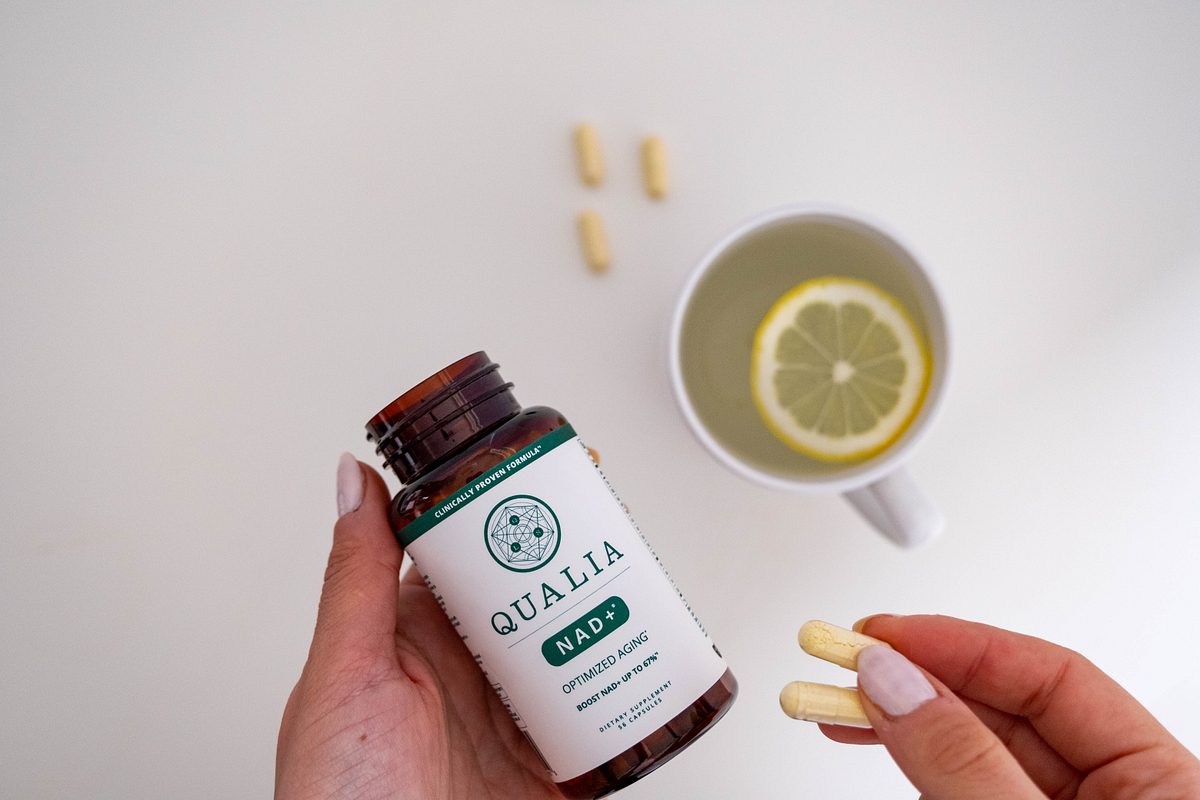Prediabetes is a condition that affects nearly one in three American adults. With approximately 98 million adults living with prediabetes (80% unaware of their condition), it poses a significant public health threat.1
Prediabetes is marked by elevated blood-sugar levels that haven’t yet progressed to type 2 diabetes, serving as a critical warning sign for cardiovascular issues, nerve damage, and other metabolic complications. At its core, this condition is linked to insulin resistance, where the body’s cells fail to respond effectively to insulin. The encouraging news is that prediabetes is often reversible through timely lifestyle changes and interventions.2-4
Here are 10 effective strategies to combat prediabetes and improve your overall health.
10 Ways to Control and Manage Prediabetes
1. Moderate Carbohydrate Intake
Managing carbohydrate and sugar intake is essential for controlling prediabetes. Focus on foods with a low glycemic index (GI) and glycemic load (GL) to stabilize blood-sugar levels. Incorporate high-fiber foods like legumes, leafy greens, cruciferous vegetables, and low-sugar fruits such as berries. Fiber slows sugar absorption, preventing spikes in blood glucose and promoting better blood-sugar control.5, 6
The Sugar Impact Diet offers a practical and sustainable approach to managing blood sugar. It focuses on replacing high-sugar-impact foods with low-sugar-impact alternatives, allowing you to effectively control your blood sugar without eliminating sugar from your diet.
2. Eat a Balanced Diet
The trifecta of protein, healthy fats, and fiber—eating by the plate, as I call it—helps balance blood-sugar levels. Aim for 30-50 grams of protein per meal from sources like grass-fed beef, pasture-raised poultry, wild-caught fish, and pastured eggs (if tolerated), as protein promotes satiety and helps regulate blood sugar.
Healthy fats from avocados, nuts, seeds, and olive oil help balance blood sugar as well by slowing digestion and absorption, which prevents rapid spikes in blood-glucose levels.7-9
3. Get the Right Nutrients
Effectively managing prediabetes involves focusing on key nutrients that support blood-sugar balance:
- Magnesium enhances insulin sensitivity and glucose metabolism, acting as a cellular “key” to improve insulin responsiveness.
- Vitamin D boosts insulin production and helps lower the risk of insulin resistance.
- High-quality fiber powder can slow carbohydrate digestion and absorption, preventing blood-sugar spikes.
- Omega-3 fatty acids reduce inflammation and improve cell membrane function, aiding glucose metabolism and further reducing insulin resistance.10-13
4. Lift Heavy
Incorporating resistance training into your routine can significantly improve insulin sensitivity and blood-sugar management. As you build muscle mass, your body becomes more efficient at utilizing glucose, which helps stabilize blood-sugar levels. Additionally, lifting heavy weights boosts metabolism and aids in weight management.14, 15
Ready to get started? My FREE Resistance Training Cheat Sheet can provide everything you need to begin your strength-training journey, including home gym essentials, an 8-week workout plan, and a progress tracker.
5. Manage Stress
Managing stress is crucial for controlling blood sugar levels, as stress hormones can increase glucose production and decrease insulin sensitivity. When these hormones remain elevated, they can exacerbate blood-sugar issues. Practical techniques to manage stress include meditation, yoga, and deep-breathing exercises.16, 17 Prioritizing self-care activities that bring joy and relaxation is equally important.
6. Prioritize Sleep
Studies show even depriving yourself of sleep for just one night can increase your risk of insulin resistance and diabetes.18 To improve sleep quality, establish a consistent bedtime routine, create a sleep-friendly environment, and address common sleep disruptors like caffeine and blue-light exposure. Aim for 7-9 hours of uninterrupted sleep every night, maintaining consistent sleep and wake times even on weekends. A melatonin-based sleep supplement can support restful sleep.*
7. Drink Plenty of Water
Water acts as a natural regulator for blood sugar, helping your kidneys eliminate excess glucose.19 Keep a water bottle within reach and sip throughout the day. This convenient calculator can help you determine your personalized daily water requirements.
8. Use a Continuous Glucose Monitor (CGM)
Continuous glucose monitors (CGMs) assist in managing prediabetes by providing real-time blood-sugar data. These devices track how your body responds to various foods, activities, and stressors, giving immediate feedback and alerts on blood-sugar changes. This constant monitoring helps you make informed decisions about diet and exercise, allowing for precise adjustments to better blood-sugar control.
The Nutrisense Continuous Glucose Monitor is a wearable device that tracks real-time blood-sugar levels. It pairs with a smartphone app to give users insights into how their diet, exercise, and lifestyle choices affect their glucose levels. This system allows individuals to make data-driven decisions about their health and potentially optimize their metabolic function. Order here and use code JJ50 for $50 off your order.**
9. Work With Your Functional-Medicine Doctor
Partnering with a functional-medicine doctor provides personalized support for managing prediabetes. They serve as your health coach, guiding you through regular blood-sugar monitoring and progress tracking using traditional logs or modern apps. Your doctor can adjust your strategy based on key health markers like A1C levels and cholesterol, offering tailored advice on diet, supplements, and stress management. This individualized approach and professional support enhance your ability to manage prediabetes and boost your overall health.
10. Cut Smoking and Alcohol
Smoking increases insulin resistance and inflammation, raising the risk of developing type 2 diabetes by 30-40% compared to non-smokers. Alcohol, on the other hand, causes fluctuations in blood-sugar levels, with initial drops followed by spikes. Plus, many adult beverages contain hidden sugars and empty calories.20, 21 If you drink, limit alcohol intake to one drink per day. (One drink is about 5 oz of wine.)
Protein: Your Ally in Blood-Sugar Balance
Optimal protein intake is essential for managing blood-sugar levels and can be a key strategy in preventing or reversing prediabetes. You’ll want 30-50 grams of protein per meal to enhance your body’s insulin response and maintain stable blood-sugar levels throughout the day. To make this easier and help you reach your goals more quickly, I’ve created a Protein Cheat Sheet that guides you in building meals with 30 to 60 grams of protein. By prioritizing protein, you’re fueling your body, supporting your metabolic health, and stabilizing blood-sugar levels.
Get your FREE Protein Cheat Sheet here.
References:
- Centers for Disease Control and Prevention: Prediabetes: Could It Be You?
- Mayo Clinic: Prediabetes – Symptoms and causes
- Freeman AM, Acevedo LA, Pennings N. Insulin Resistance. [Updated 2023 Aug 17]. In: StatPearls [Internet]. Treasure Island (FL): StatPearls Publishing; 2024 Jan-. Available from: https://www.ncbi.nlm.nih.gov/books/NBK507839/
- Cleveland Clinic: Prediabetes: What Is It, Causes, Symptoms & Treatment
- Linus Pauling Institute: Glycemic Index and Glycemic Load
- Harvard University: Fiber
- Gannon MC, Nuttall FQ, Saeed A, Jordan K, Hoover H. An increase in dietary protein improves the blood glucose response in persons with type 2 diabetes. Am J Clin Nutr. 2003 Oct;78(4):734-41. doi: 10.1093/ajcn/78.4.734. PMID: 14522731.
- Giuntini EB, Sardá FAH, de Menezes EW. The Effects of Soluble Dietary Fibers on Glycemic Response: An Overview and Futures Perspectives. Foods. 2022 Dec 6;11(23):3934. doi: 10.3390/foods11233934. PMID: 36496742; PMCID: PMC9736284.
- Healthline: 17 Foods to Lower Your Blood Sugar
- Liu H, Li N, Jin M, Miao X, Zhang X, Zhong W. Magnesium supplementation enhances insulin sensitivity and decreases insulin resistance in diabetic rats. Iran J Basic Med Sci. 2020 Aug;23(8):990-998. doi: 10.22038/ijbms.2020.40859.9650. PMID: 32952944; PMCID: PMC7478262.
- Sung CC, Liao MT, Lu KC, Wu CC. Role of vitamin D in insulin resistance. J Biomed Biotechnol. 2012;2012:634195. doi: 10.1155/2012/634195. Epub 2012 Sep 3. PMID: 22988423; PMCID: PMC3440067.
- Mayo Clinic: Dietary fiber: Essential for a healthy diet
- Sinha S, Haque M, Lugova H, Kumar S. The Effect of Omega-3 Fatty Acids on Insulin Resistance. Life (Basel). 2023 Jun 5;13(6):1322. doi: 10.3390/life13061322. PMID: 37374105; PMCID: PMC10305526.
- Niemann MJ, Tucker LA, Bailey BW, Davidson LE. Strength Training and Insulin Resistance: The Mediating Role of Body Composition. J Diabetes Res. 2020 May 8;2020:7694825. doi: 10.1155/2020/7694825. PMID: 32455135; PMCID: PMC7235686.
- Mayo Clinic: Strength training: Get stronger, leaner, healthier
- Sharma K, Akre S, Chakole S, Wanjari MB. Stress-Induced Diabetes: A Review. Cureus. 2022 Sep 13;14(9):e29142. doi: 10.7759/cureus.29142. PMID: 36258973; PMCID: PMC9561544.
- Mayo Clinic: Relaxation techniques: Try these steps to lower stress
- Donga E, van Dijk M, van Dijk JG, Biermasz NR, Lammers GJ, van Kralingen KW, Corssmit EP, Romijn JA. A single night of partial sleep deprivation induces insulin resistance in multiple metabolic pathways in healthy subjects. J Clin Endocrinol Metab. 2010 Jun;95(6):2963-8. doi: 10.1210/jc.2009-2430. Epub 2010 Apr 6. PMID: 20371664.
- Healthline: 14 Easy Ways to Lower Blood Sugar Levels Naturally
- Maddatu J, Anderson-Baucum E, Evans-Molina C. Smoking and the risk of type 2 diabetes. Transl Res. 2017 Jun;184:101-107. doi: 10.1016/j.trsl.2017.02.004. Epub 2017 Mar 6. PMID: 28336465; PMCID: PMC5429867.
- Medical News Today: Does alcohol affect blood sugar levels in diabetes?
*These statements have not been evaluated by the Food & Drug Administration. Products mentioned are not intended to diagnose, treat, cure, or prevent any disease. The views in this blog by JJ Virgin should never be used as a substitute for professional medical advice. Please work with a healthcare practitioner concerning any medical problem or concern.
**I couldn’t make it without supportive relationships, and I bet you feel the same! That’s why my team and I offer you products and services we believe in. If you happen to purchase something I recommend here, I may receive some kind of compensation. However, I only bring you partners whose content and core values will serve you with the same commitment to excellence my team and I strive for every day. Please be in touch with any concerns.






